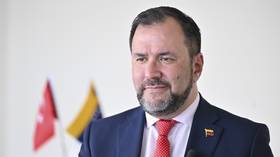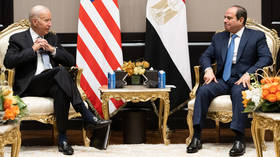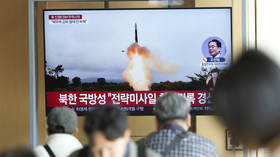BRICS an ‘ideal alliance’ to ditch the dollar – Venezuelan FM

Venezuelan Foreign Minister Yvan Gil Pinto foresees that BRICS expansion will unite major energy producers and consumers, offering a pathway toward reducing the dependence on the US dollar in global trade.
In a recent interview with RIA Novosti, the senior diplomat highlighted the inclusion of Saudi Arabia and Iran in this group of emerging economic powers. Additionally, Venezuela aspires to join BRICS in the future. This expansion would encompass over 80% of the world’s crude reserves and production, as emphasized by Minister Pinto during the interview, which was published on Monday.
“With China and India included, BRICS will also be the biggest energy consumer. In other words, it will become an ideal alliance, ideal complementary,” he explained.
Starting next year, Saudi Arabia and Iran will officially become full members of BRICS, following the approval of their candidacies, along with four others, during last month’s leaders’ summit in South Africa. The group aims to shift the global landscape away from institutions predominantly controlled by Western powers, which member states argue are subject to misuse by the United States and its allies.
Pinto expressed his optimism about Venezuela's potential swift inclusion, given the support it has garnered. He emphasized that BRICS’ increasing influence in the oil trade could “cement de-dollarization of trade in energy and industrial goods, such as the technology produced in China and India.”
“With this, we will make a contribution to the creation of a more balanced world,” he added, pointing out that Venezuela sees the shift away from the “hegemony” of the US dollar as a win for itself.
“Today, we see the dollar being used as a weapon of subjugation against other countries,” he explained. “This new pool of currencies emerging in world trade will be a positive thing for the stability of all our nations.”
Venezuela boasts the world’s largest oil reserves, though primarily consisting of heavier hydrocarbons that pose greater challenges in extraction and refining. In a concerted effort to exert pressure on President Nicolas Maduro’s government, Washington has imposed a series of unilateral sanctions, primarily focusing on Venezuela’s oil sector. These sanctions have also curtailed the country’s access to refineries based in the United States.












